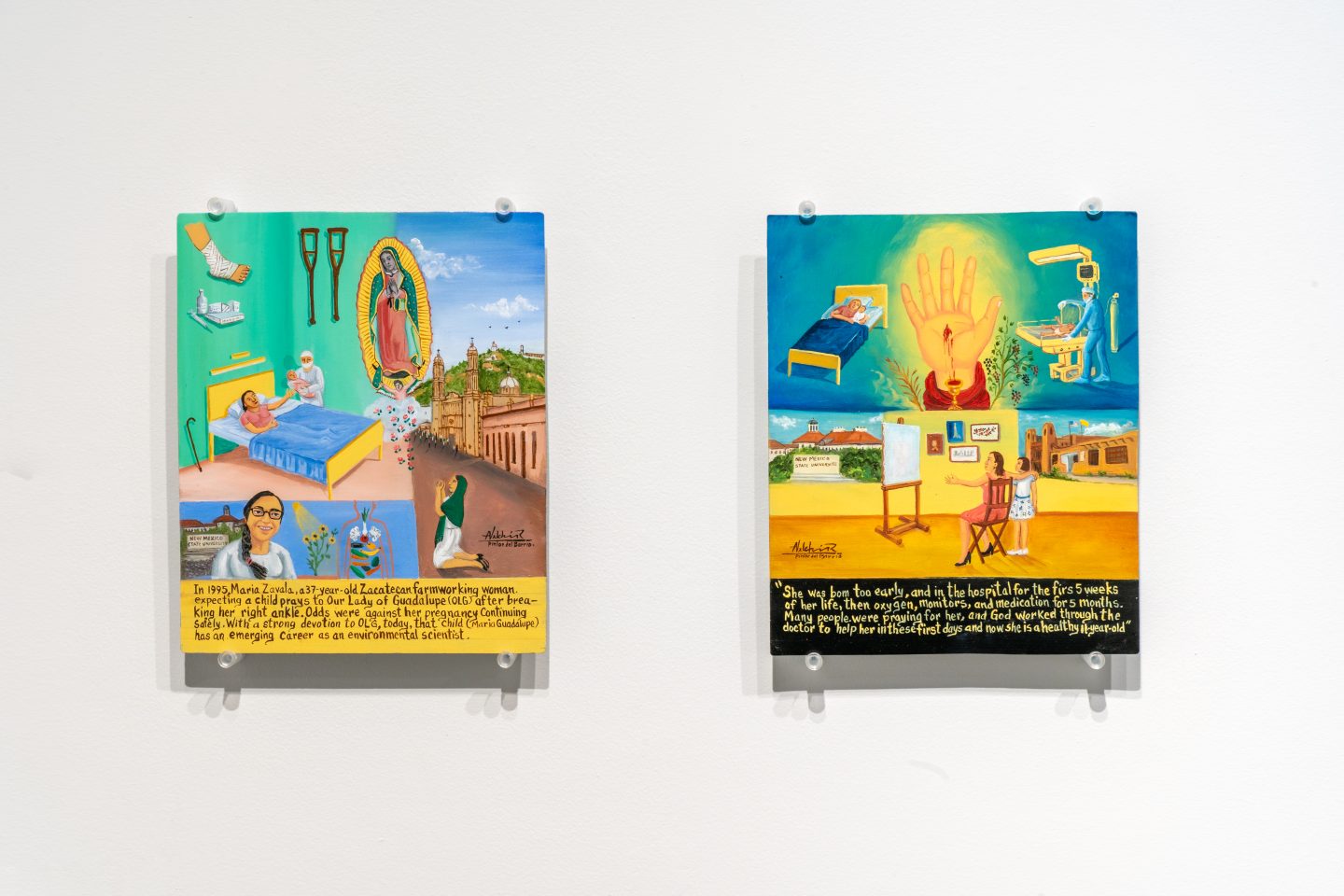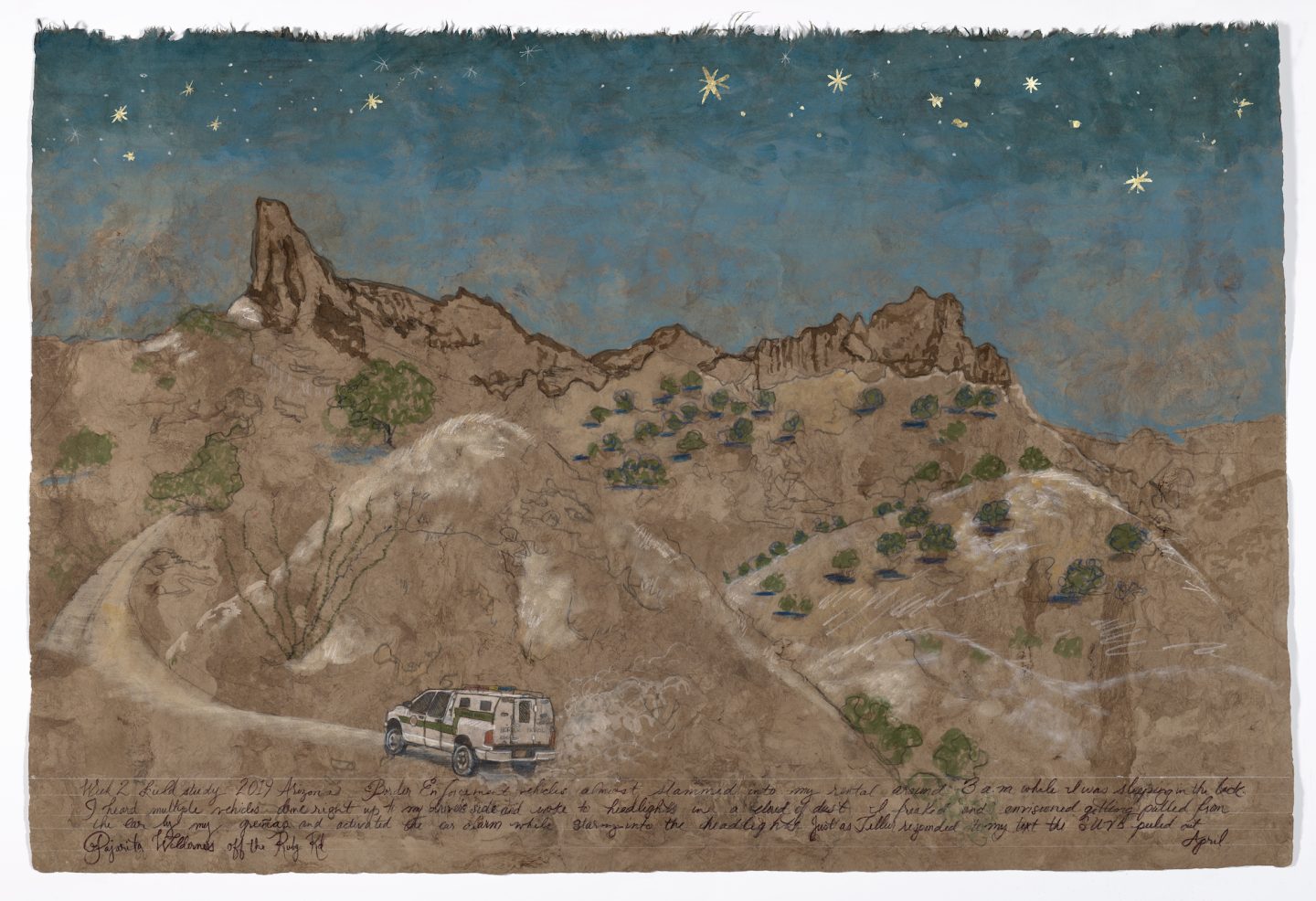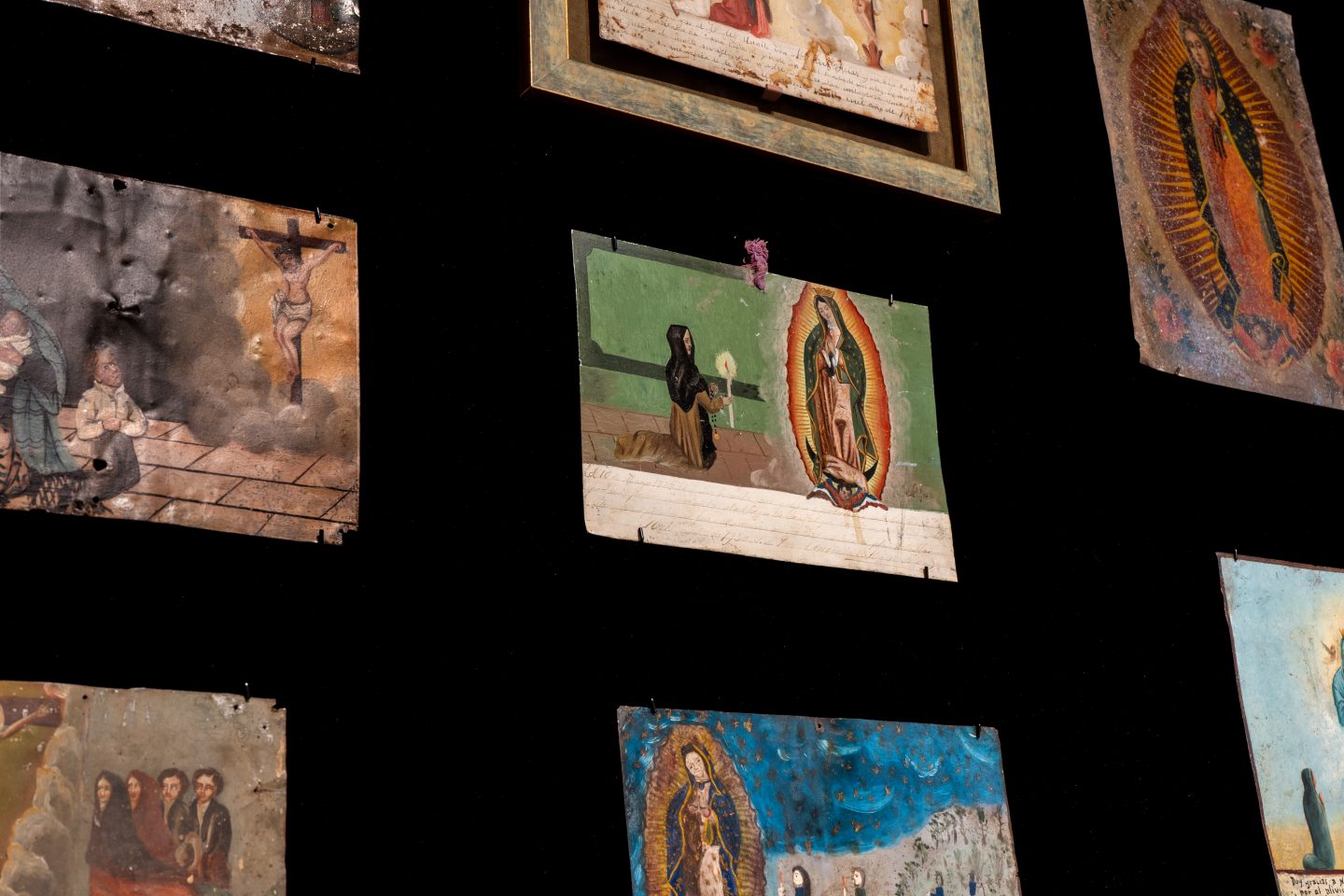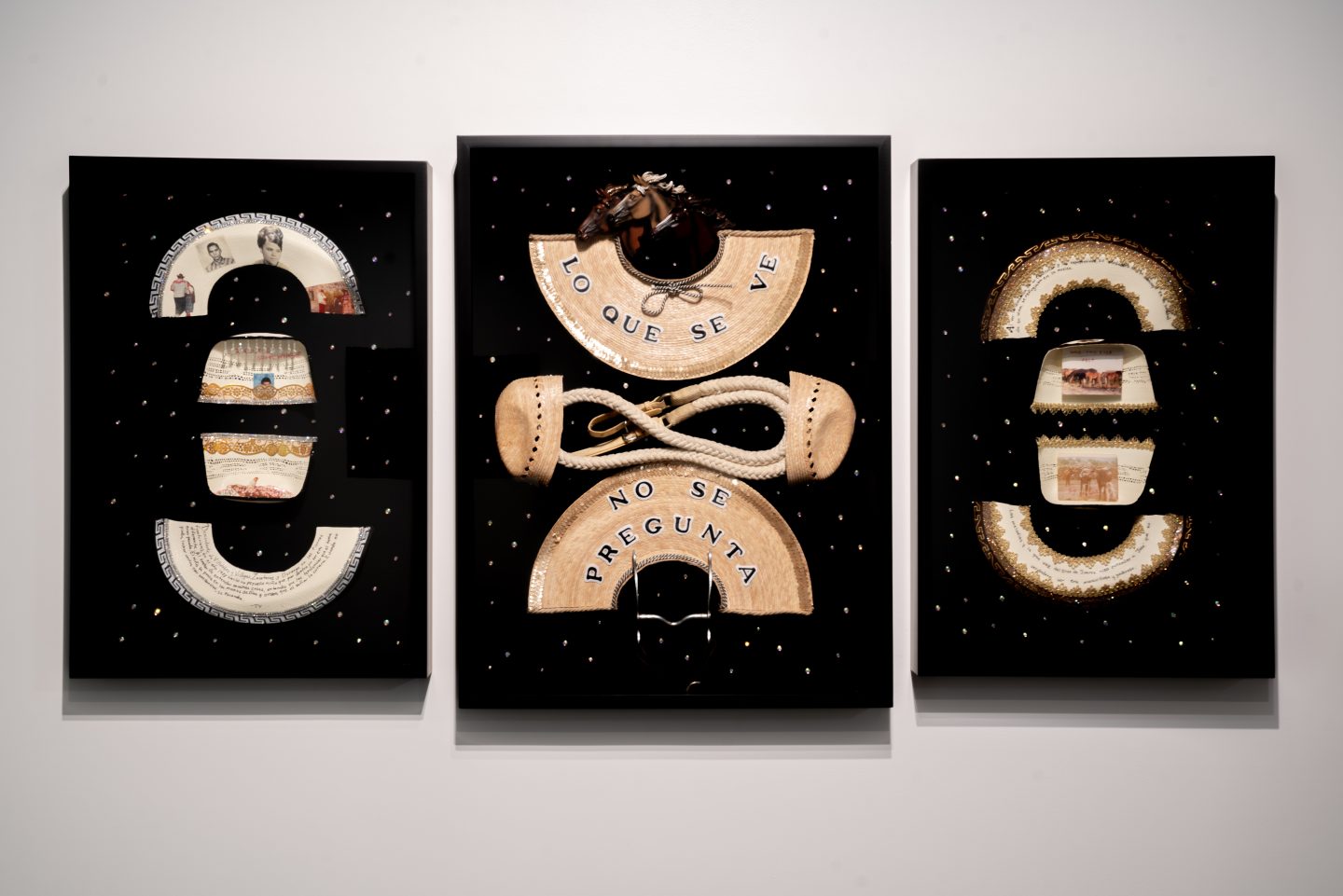Exhibitions
ABOUT THE EXHIBITION
Contemporary Ex-Votos is the first exhibition to pair 19–20th-century retablos from the New Mexico State University Art Museum’s Permanent Art Collection, the largest collection of retablos in the U.S., with new works by contemporary Latinx artists. The exhibition sheds light on the understudied iconographic and ideological aspects of ex-votos, a type of retablo—small devotional painting—depicting miracles painted on tin and found materials.
This exhibition, presented both at Gallery 400 and in an extension at the Jane Addams Hull House Museum, demonstrates the important place retablos hold in the history of the Americas. It recontextualizes studies of contemporary devotion in Latin America and the U.S. by commissioning artists to research the retablo collection. This show results in site-specific works that consider how retablos are more than by-products of colonialism, illuminating current socio-political issues of class, race, and gender through artistic methodologies of resistance.
Emergent Latinx artists utilized the historic retablo collection to create and respond to ex-votos that challenge classification as part of the Mexican folk-art tradition depicting transhistorical religious narratives. The scale of the commissioned works, experimentation with the medium, and disparate approaches to contemporary devotion represent new perspectives on this important and often overlooked genre of art. “Artists undertake a dialogue between historical and new works, allowing us to make sense of ex-votos beyond ethnographic and artistic hierarchies,” said Dr. Ortega.
Contemporary Ex-Votos questions all previous scholarship on ex-votos while expanding notions of American art. Traditionally, ex-votos have been studied through ethnographic and art historical lenses, extracting them from the original devotional context within the broader culture of Latin America. Their position as neither fine art objects nor historic(al) documents has typically assigned them to a fixed place as “curious” and “naive” objects of the past. Contemporary Ex-Votos demonstrates the power of Latinx stories outside the sentimentalized narratives of migration, an approach often present in contemporary Latinx artistic practices.
The extension at the Jane Addams Hull House Museum, on the UIC campus at 800 S. Halsted St., includes most of the historical ex-votos from the NMSU Permanent Art Collection, while all of the contemporary artists and some interventions with historical works are sited at UIC Gallery 400.
Contemporary Ex-Votos presents the curatorial work of Dr. Emmanuel Ortega, the research of students at the University of Illinois Chicago and New Mexico State University, and the practice-based investigations of fifteen artists. The curatorial approach for this exhibit has been collaborative, spanning communities in Las Cruces, NM, and Chicago, IL. Dr. Ortega organized an undergraduate seminar at UIC where conversations about critical approaches to ex-votos ranged from new ways to consider translation to a reconsideration of outdated art-historical language that categorizes ex-votos as folk art. English translations of the original Spanish texts created as part of this seminar are displayed alongside the Mexican retablos. The co- curation at Jane Addams Hull House Museum was created by Joshua Gomez and Mariela Espinoza-Leon.
Accompanying the Chicago presentation, young people have created their own ex-votos on display at SkyART South.
Exhibition material can be found in plain text and audio recordings here.
ARTISTS
Alberto Aguilar, Justin Favela, Eric J. García, Ariella Granados, Francisco Guevara, Dan45 Hernandez, Juan Molina Hernández, Sebastián Hidalgo, John Jota Leaños, Guadalupe Maravilla, Yvette Mayorga, Daisy Quezada Ureña, Krystal Ramirez, Sandy Rodriguez, Xochi Solis, Alfredo Vilchis, Daniel Vilchis, José Villalobos
SUPPORT
Contemporary Ex-Votos: Devotion Beyond Medium originated at the NMSU University Art Museum. This exhibition is made possible by support from the Andrew W. Mellon Foundation, the Carl & Marilynn Thoma Foundation, and the National Endowment for the Arts.
Major support for the exhibition at UIC Gallery 400 is provided by The Carl & Marilynn Thoma Foundation and the Terra Foundation for American Art. Additional support provided by the Illinois Arts Council Agency and the School of Art & Art History, College of Architecture Design, and the Arts, University of Illinois Chicago.

























